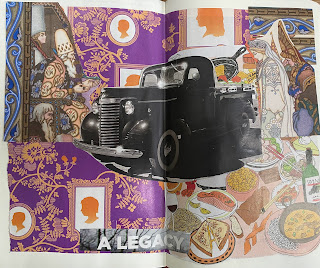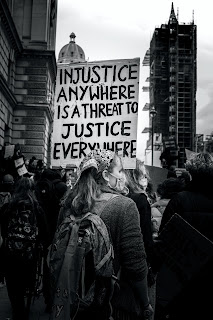Day 88 – Troubling Care
 |
| Photo by Nikhil Mitra on Unsplash |
That said, I’m very excited to have completed the Commentary for the special issue in The Arts in Psychotherapy: Intersectionality and the ethics of care in the creative arts therapies.
The article: Commentary: Troubling care – is available through this special link for 50 days for free. https://authors.elsevier.com/a/1fHWeivMuDL0X
I like the double entendre of this title – Donna Haraway’s book Staying with the trouble was partly the inspiration for my title, as was John Lewis’ encouragement to “make good trouble.” The idea that caring can be troubling, and that we should “trouble” our conceptions of caring, are at the heart of the commentary.
Here are a couple of paragraphs from my preprint version:
How do we complicate our notions of “helping” and “care?” How do we think critically about these concepts? How do we question our desires to “help,” “care for” or be “good people,” when those qualities are so often both exalted and demeaned by the dominant narrative? Critical reflexivity can offer us a means of complicating our concepts of helping and care, of critically examining those concepts, and of questioning our desires to “help” within CAT. In discussing the critical reflexivity necessary for reframing community research and working in a transdisciplinary practice, Attalah et al., (2021) state,
In this light, we require critical examination of our ontologies and epistemologies,
especially learning from critical scholarship and decolonial critiques that
argue for thorough deconstruction of the normative discourses and practices
within which researchers tend to create their partnerships with
communities, by recognizing how racism and other forms of discrimination
may be carved into even the most well-intentioned studies, interventions,
policies, and efforts by academics to increase research participation. (pp. 885-886)
This invitation seems to be for us all working in helping professions. However, thinking about words like “ontology” and “epistemology” requires that we tolerate more complexity in thinking about the “why” and the “how” of what we do. We are asked to consider how discrimination and the mentality of domination are often “carved” into our theory, training, research, and practice, despite our well-intentions.
It is often difficult to reconcile the hard work of becoming a CAT with the downsides of the professionalization of helping. The very training and roles of arts therapists are too often based on models which assume expertise, and promote individualism, and unidirectional helping without acknowledging needs for mutuality and interdependence, and “too often usurp the understandings and agency of those they intend to help” (Watkins, 2019, p. 1). Many of us are conflicted by the ways our roles as CATs and those of caretakers have reproduced “heteropatriarchal, racialized, capitalist structures” (Wright & Wright, 2022) – even as we hesitate to think too much about it.
Estrella, K. (2022). Commentary: Troubling care. The arts in psychotherapy, 80.
Haraway, D. J. (2016). Staying with the trouble: Making kin in the chthulucene. Duke University Press.



Comments